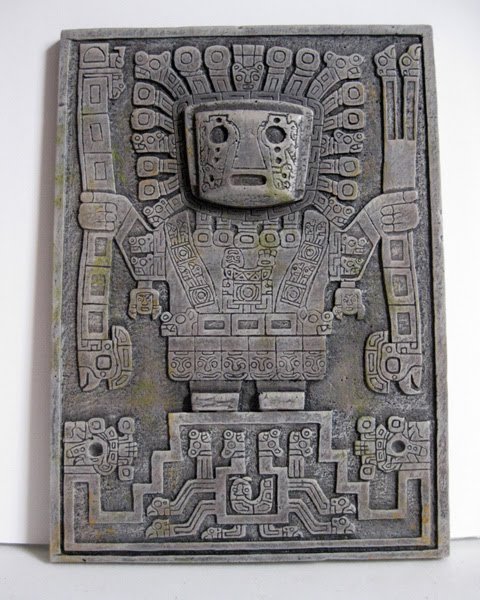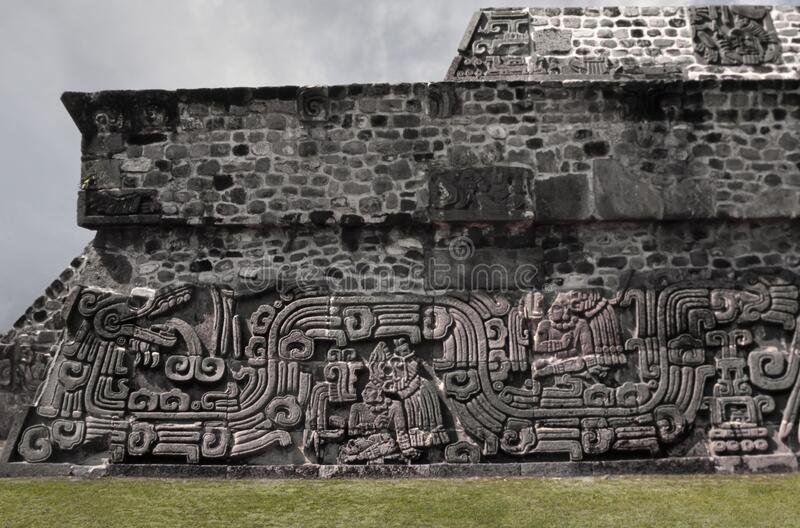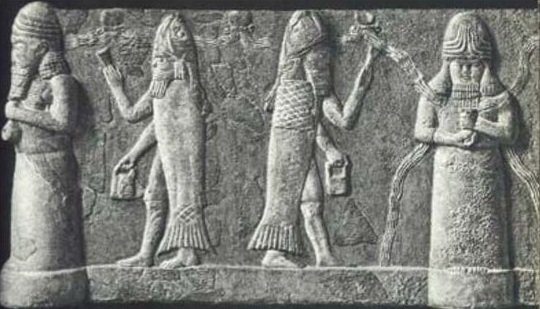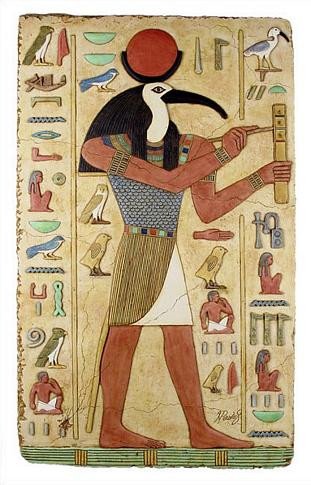The Legend of Atlantis – Myth, Reality or both?
Disclaimer
The intention of this content is to expand awareness about certain places, myths and stories told at some point by humanity. Much of the information may not be scientifically supported or may contradict current theories. Knowledge, throughout history, is constantly updated, constructed or replaced when there is greater understanding. Therefore, we want to build a serious approach, within free thought, and in its use in a beneficial way for collective evolution. If you like this content, please consider to follow us on Instagram and Youtube for more.
Where did the myth of Atlantis come from?
Of all the mythical places that are featured in the histories, legends and tales of philosophers, ancient explorers and even some recent curious people, Atlantis is the most famous. Its supposedly advanced civilization, architecture and features populate films, books and content, some fanciful, others quite intriguing.
But with all this comes the question: Did Atlantis really exist? If so, with all the recent technology, why hasn't it been discovered yet?
Plato was the first to write down the legend of Atlantis in Timaeus and Critias. But he was not the first teller of this story, which is older than the Greeks themselves. Solon, heard the story of a great Egyptian priest of the city of Sais, who mocked the pride of the Greeks in being an advanced society and quite civilized for the time.
“O Solon, Solon, you Greeks are always children... you are young in soul, each one of you. For there [in Greece] you have not a single belief ancient and derived from ancient tradition, nor a science that is as old as the age" (PLATO. Timaeus)
From there, Solon, impressed by the story, shared it with his fellow Greeks, giving rise to Plato's rich accounts.
In this sense, we must consider that Plato is one of the most respected philosophers to date. His works generated ideas and foundations for virtually all of today's civilization through his thoughts. But, did Plato decide to write a work of fiction for some reason?
What was Atlantis and where was it?
Atlantis was supposedly an island, continent or archipelago, divided into ten different kingdoms that housed a capital where the mythical citadel of concentric circles was located that we are used to seeing in different new and old representations.
"There were numerous mountains, close to the plain of the city, rich in inhabitants, rivers, lakes, forests in such great numbers of essences, so varied that they provided an abundance of materials suitable for all possible works. Now, in the plain, by the action of many kings (...) a quadrilateral was built with almost straight and elongated sides, where the sides moved away in a straight line, (...) digging the continuous ditch that surrounded the plain. canal it is hard to believe that the work came out of human hands.(...) The ditch received the water courses that came down from the mountains, made the return to the city, and from there, it would empty into the sea.( ...) To carry wood from the mountains, to take other seasonal products by boat, navigable derivations were dug from canals, with an oblique direction in relation to each other and in relation to the city." (PLATO. Timaeus and Critias)
In addition, Plato reported that the mythical island was located “Beyond the Pillars of Hercules”, which can be interpreted as the present-day Strait of Gibraltar and was “the size of Libya and Asia Minor together”, which constituted a great extension of land.
Atlantis and its location by Athanasius Kircher (1669)
The Atlantis described by Plato was a continent where there was a great technical and spiritual advancement of its inhabitants. This information alone, if real, would be surprising to the point that our current history records that at that time there were only men hunters and gatherers, who lived in caves scattered across Europe, Asia and Africa. How would such a breakthrough be possible in a specific locality in possible coexistence and relationship with several previous steps in the evolutionary scale?
These questions don't have a clear answer to this day, but an intriguing point is: if the island were really fictional, why would Plato digress so much in describing its location, size and geography?
How did Atlantis disappear?
Solon reports that the end of Atlantis happened approximately 11600 years ago from the present time (9600 BC). In an apocalyptic passage, Plato narrates the catastrophe as a result of a punishment from the Gods for the audacity and destruction of advanced society, which degenerated instead of following a path of virtue.
“...Later, however, earthquakes and portentous floods occurred, and a grievous day and night befell them, when all the bodies of their warriors were swallowed up by the earth, and the island of Atlantis likewise was swallowed up by the sea and disappeared; therefore, also the ocean in that place has now become impassable, being blocked by the mud which the island created when it settled..” (PLATO, Timaeus).
Interestingly, it is known that some scientific studies point to evidence of a global catastrophe at the same time as pointed out by Plato and Solon. The end of the last Ice Age, great floods and even a great impact could have happened exactly on this very representative date. But it is not possible to point out any concrete evidence of the missing island at the bottom of the Atlantic.
Either way, these new findings add further uneasiness to point positively to oral accounts from cultures across the globe (flood myths and a “great reset”) that were previously considered purely fictitious or improbable.
Is there evidence of Atlantis? And clues?
There is no hard proof of the existence of Atlantis until today. However, there are many clues and indications that reignite discussions from time to time, especially for those who study the cultures, religions and oral traditions of ancient peoples.
“Now, on this island of Atlantis, there was a confederation of kings, of great and wonderful power, who ruled over the whole island and also many other islands and parts of the continent; and, moreover, from the lands here within the Straits, they ruled Libya as far as Egypt and Europe as far as Tuscany.” (PLATO, Timaeus)
It is interesting to observe this report by Plato in the context that the most advanced civilizations of the last 5000 years in Europe and Africa inherited very similar gods, customs and histories. The Etruscans in Italy, the Egyptians, Celts, Minoans and Phoenicians were great heirs of very advanced technologies for their time. Their agriculture, forge, architecture, astronomy and knowledge about nature were amazing.
A map showing the supposed extent of the Atlantean Empire, by Ignatius L. Donnelly's - Atlantis: the Antediluvian World, 1882
Going a little further, in the “new world”, the culture of the Americas also showed great signs of development in the construction of pyramids and equally, knowledge about nature, stars and agriculture. Caral in Peru is home to the oldest pyramid in the world, surpassing even the official dating of the Egyptian pyramids. In addition, the Andean and Central American culture showed signs of great development with thousands of monuments and knowledge that refer to an ancient home.
These clues pointing to a common, missing link are the main defense of those who believe that the end of Atlantis sparked a mass exodus to the great centers of development in the ancient world from a central point in the Atlantic.
Interestingly, there are also oral reports from many ancient cultures about civilizing figures who came forward in historical moments, shrouded in mystery and performed great “miracles” before leaving. This is true in the Andes through the myth of Viracocha, in Central America through Quetzalcoatl, and even in Egypt and Sumeria through Thoth and Oannes. These beings are described as men with characteristics different from the natives, who navigated by means of “feathered serpents”, or else had a “fish” garment.




Even if we consider the most famous book on Earth - The Holy Bible - we have a parallel to Atlantean history, through the myth of Noah's flood, caused by Yahweh's concern with the sin and perdition of the human race. This story repeats itself in the Epic of Gilgamesh, with Utnapishtim and in the Hindu sacred texts, through the hero Manu where an incredible cataclysm sweeps the earth, burying much of the technology, beliefs and antediluvian tradition.
Last but not least, we have curious clues through legends of ancient peoples such as the “Gods who came from the Sea” or the Tuatha de Danann of the Celts. Avalon (Also interpreted as “Atalan” or the Isle of Mists). Aztlán, the ancestral home of the Aztec peoples, remembering that “Astekah” is the Nahuatl word for “people from Aztlan” who migrated to Mexico. the Garden of Eden itself, from which man is expelled by disobedience and desire to know good and evil.
The Egyptians, theoretically one of the inheritors of the antediluvian tradition, also tell stories about a hill that emerged from the primeval waters of Nun and was the main symbol of the act of creation. This place of creation is especially recorded in the temple of Edfu, on the banks of the Nile River.
What can we extract?
Whether Atlantis is a real or fictional location, there are still extensive debates about it. Many claim that Plato, with his story, intended to narrate a tale that would serve as an allegory for societies at the time, and today.
The lesson is that a society that is powerful and evolved, but which turns more and more in on itself, would inevitably be destroyed by its own ambitions. We have numerous examples throughout history that we do not need to mention here, including the Greek culture itself.
However, questions still live today, such as:
Why would Plato so accurately describe the location, size and characteristics of the mythical island?
Why would ancient cultures, even without theoretically having contact, describe this “sacred place” so well from which “man was expelled” and which was often characterized by a continent, or an island beyond the sea?
What other evidence can science provide us today that coincide with natural catastrophes that occurred around that time?
It is not difficult to think that we can be a civilization with amnesia. The mythical city of Troy was recently discovered, when it was believed that it was just a creation of the minds of philosophers and troubadours. Other discoveries have been made at the bottom of the oceans, in dense forests, and even under layers of rock, mud and soil.
But to do so, we must continue to connect the ends between myths and science.
Let's continue to explore! To the next one!

